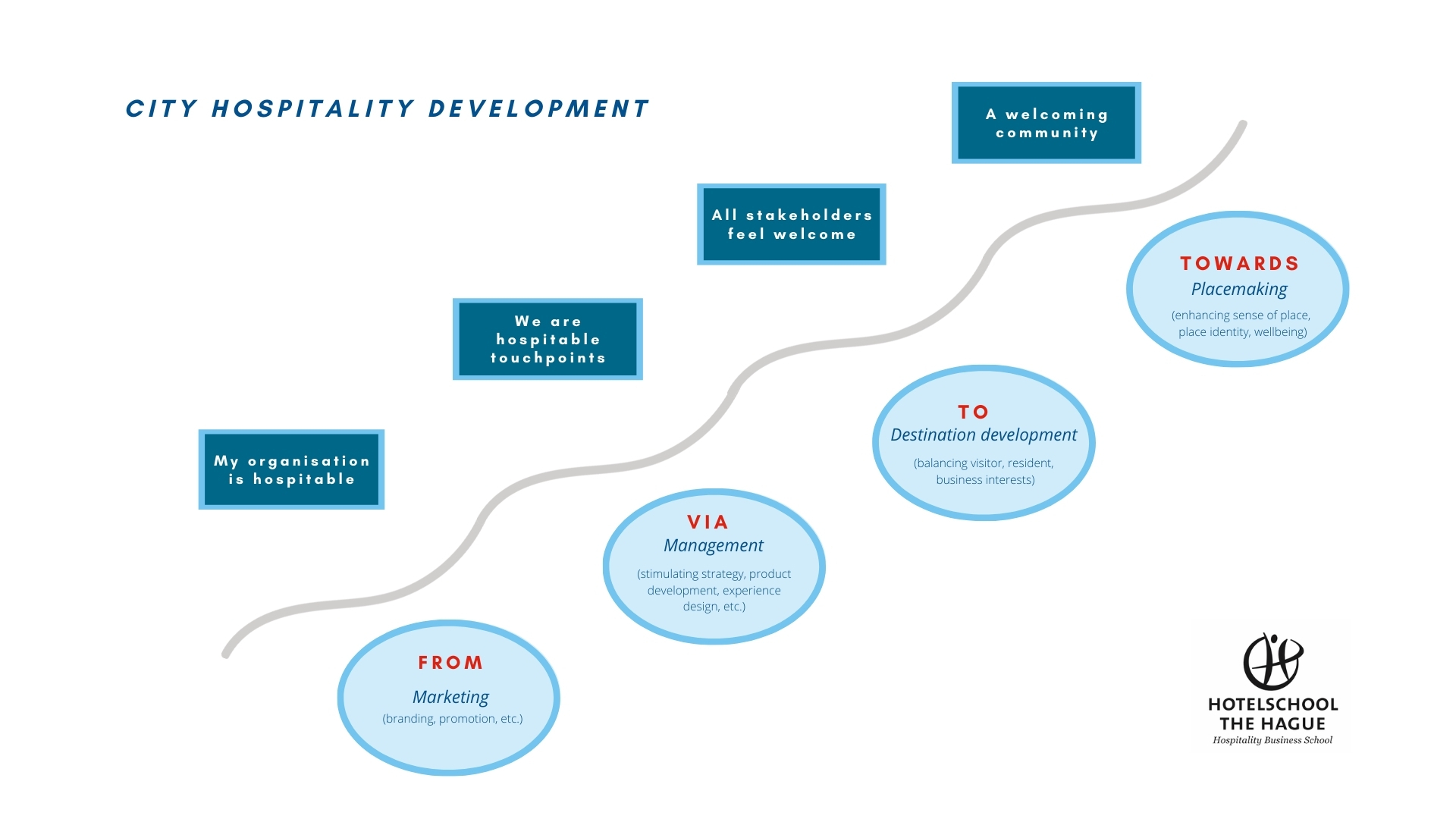Regenerating City Tourism – Amsterdam as Case
Even after going through a pandemic visitor number are starting to rise again, and with that city tourism is still one of the fastest growing travel segments worldwide. Finding ways to support the development of responsible city tourism, thereby mitigating pressure on city life whereby both tourist experiences and residents’ perceived quality of life are negatively influenced. Over the past years the media has launched many writings on the negativity around city tourism, yet what remains unclear is what happens if you try to involve the tourist actively and start with them as they are one of the main actors of the ongoing discussion. Adding a bit of positive psychology may bring a different perspective to the hotly debated topic of city tourism and offer opportunity to be further explored.
Therefore, one of the current projects the researchline City Hospitality is working on is understanding how experiences of tourists themselves can be favorably influenced when drawing on the construct of socio-cognitive mindfulness. This approach can entice tourists to act as guests rather than passive consumers, yielding positive outcomes on resident attitudes.
For this specific project the city of Amsterdam is used as case, as the city has experienced enormous growth of visitors together with increasing tension within the community of stakeholders. Also Amsterdam is known as one of the cities that has designed creative and meaningful projects to overcome nuisance around tourism, like ‘ City in Balance’.
With the launch of I Amsterdam in 2004, Amsterdam as city worked towards rebranding Amsterdam with this new city marketing campaign. A sympathetic idea with a highly successful result, Amsterdam was able to attract visitor targets like never before, the ultimate goal of the campaign initially. The marketing worked, slowly it was time to move towards the more management focus of the city as destination. Visitor numbers kept increasing and slowly Amsterdam became more than a ‘cool hotspot’ to visit for a fun trip. The city, and its community (e.g. residents, businesses, policy makers) started to realize the city needed to keep Amsterdam as Amsterdam for the different stakeholders involved. This resulted in a more critical sound from the community which brought to live different actions and campaigns – like Enjoy & Respect – to raise awareness about different stakeholder interests. All to support the development of the destination. Visitor numbers kept rising – with 22 million visitors in 2019 – as well as the pressure between the relation of different stakeholders like tourists and residents, resulting in the new ‘buzzword’ of overtourism. To find potential solutions reducing tension and, in the end overtourism, projects started to focus on enhancing the sense of a place, including wellbeing of all stakeholders involved – often referred to as a practice called placemaking.
